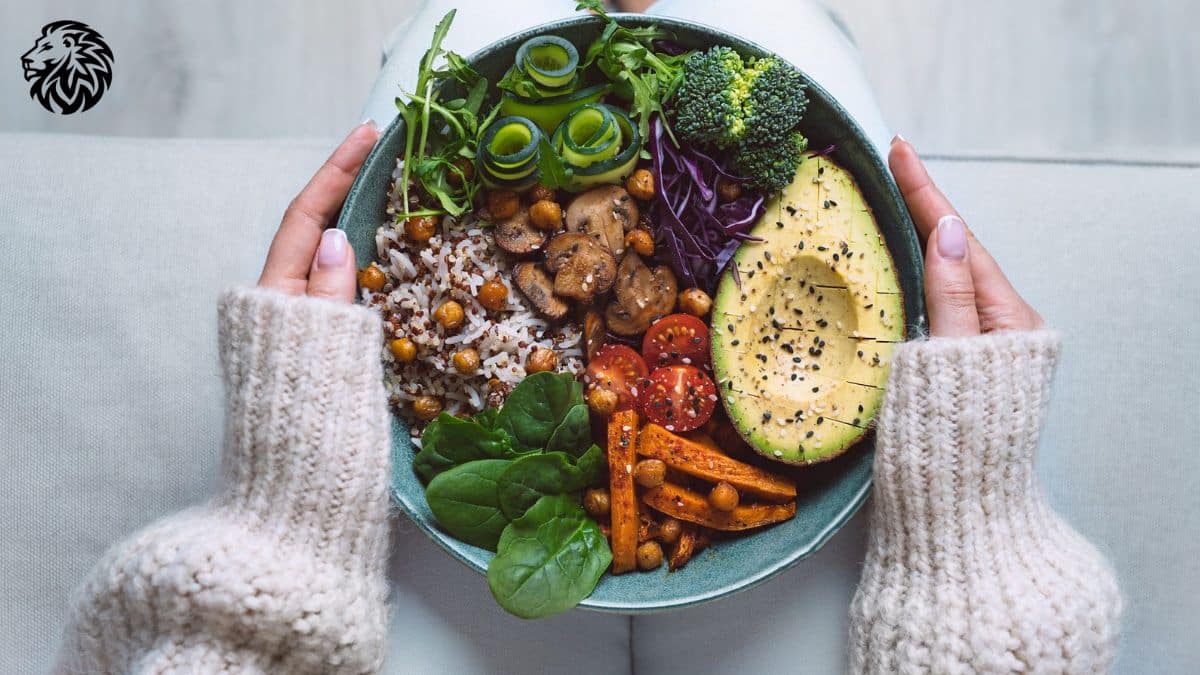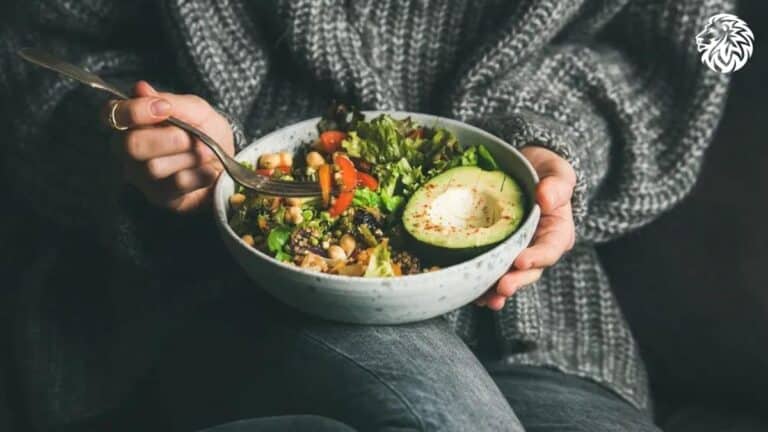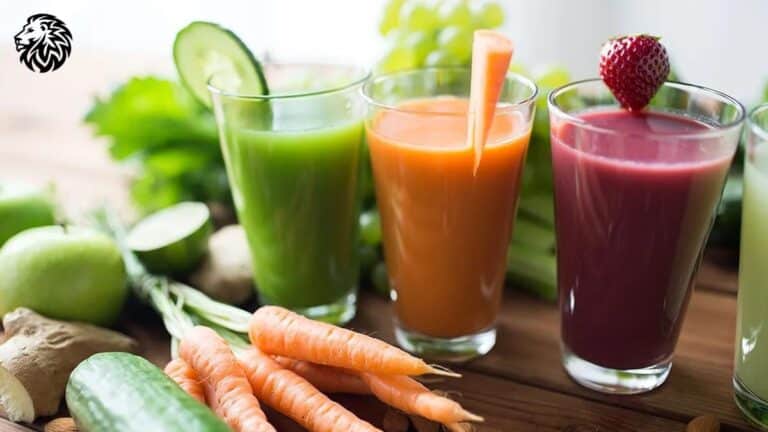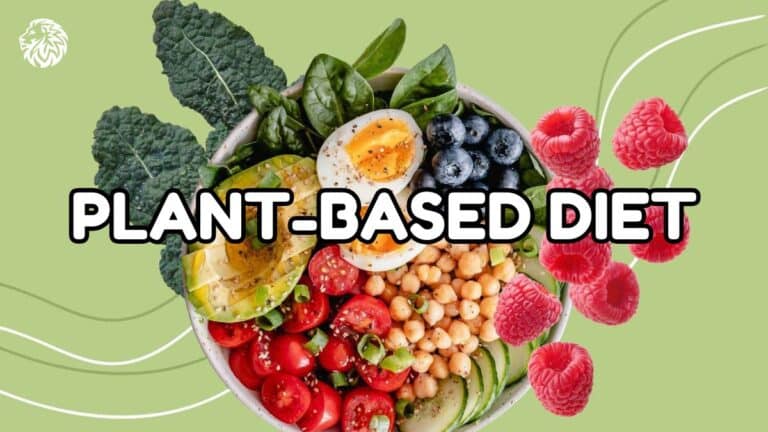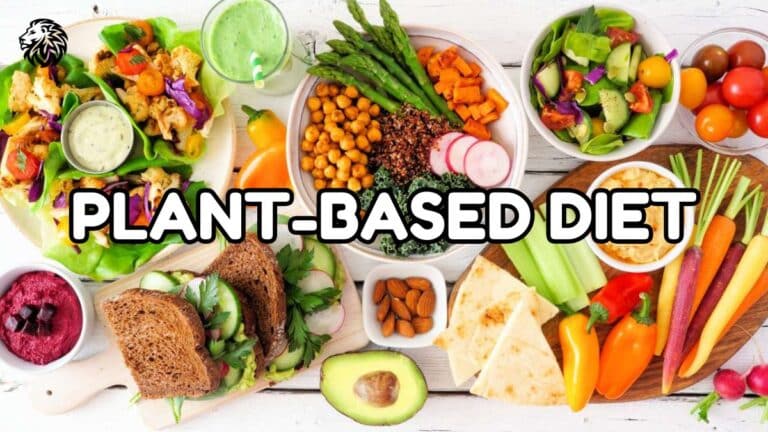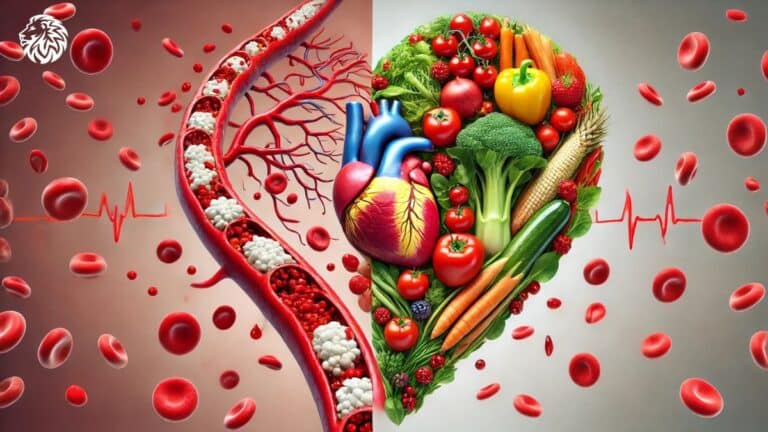Benefits of Plant-Based Diets
Cracking open the plant-based diet treasure chest, let’s unleash the good stuff it offers both the planet and your health. Ready?
Environmental Impact
Switching up your eating habits to munch more plants can be a game-changer for Mother Earth. It’s like giving her a spa day. Dive into these stats: cut diet-related land use by a jaw-dropping 76%, slash greenhouse gas emissions by 49%, and wave goodbye to a chunk of eutrophication by 49%. Even water use gets a breather with green and blue water usage cut by 21% and 14% (PubMed Central). Less animal farming means fewer natural tears spilled, and pollution from fertilizers and manure runoff takes a nosedive.
| Environmental Benefit | Percentage Drop |
|---|---|
| Land Shaving | 76% |
| Greenhouse Gas Fallout | 49% |
| Nutrient Pollution | 49% |
| Green Water Chill | 21% |
| Blue H2O Cutback | 14% |
Not settling for just a bit, plant diets could squish global emissions by 49% with high-flyer countries dropping half of their farm emissions thanks to a shift away from cattle products (PubMed Central). Gobbling on pulses, nuts, and greens not only curbs emissions but keeps Earth happy (Physicians Committee for Responsible Medicine). Want the full scoop? Check our section on Environmental Sustainability of Plant-Based Diets.
Health Improvements
Chomping on plant chow isn’t just for rabbits. It’s a health jackpot. Wave bye to chronic heavyweights like heart woes and Type 2 diabetes (PubMed Central). With lower blood pressure, cholesterol doing a happy dance, and ticker health kicking, you’re in for a vibrant health ride. Need the nitty-gritty on lowering those cardiovascular risks? Hop over to Plant-Based Diets and Disease Prevention.
And if you’ve been itching to drop a few pounds, guess what? These plant munchies are fiber-packed, keeping your belly full and happy without the sneaky hunger attacks. Perfect for those on a weight-trim mission (plant-based diet for weight loss).
Whether you’re diving into a vegan feast, nibbling on a vegetarian platter, or testing the waters with a flexitarian vibe, a plant-packed diet showers you with health perks. Make sure your nutrient game is strong by hitting up our guide on plant-based nutrition.
So, whether you’re all in or just flirting with the idea, realizing what plant-based eating does for both Earth and body, you might just find yourself hopping onto this leafy train today.
Plant-Based Diets and Disease Prevention
Plant-based eating ain’t just for rabbits, it’s got some real humans behind it—working wonders against those pesky chronic diseases. Let’s break down how munching on all things green can slap a big ol’ “no thanks” on cardiovascular headaches and diabetes mischief.
Lowering Cardiovascular Risk
Chowing down on veggies is like a shield for your heart. It’s said to knock CVD (cardiovascular disease) and CHD (coronary heart disease) risk down by a cool 16% and 11% respectively. Not too shabby, right? Having a veggie fest more often means noshing on goodness like lower body mass index (BMI), fighting off that bad cholesterol (LDL), and calming the stormy seas of high blood pressure. It’s kinda like turning your heart into a zen garden, keeping ischaemic heart disease and similar nasties at bay. If you need some meal ideas to keep the momentum going, check out some whole food plant-based diet resources.
| Chomp Style | Cardiovascular Risk Cut | Risk Cut for Heart Disease |
|---|---|---|
| Leafy & Loving It | 16% Easy Peasy | 11% Goodbye CHD |
| Meaty Munching | Regular | Regular |
Reducing Risk of Diabetes
Who knew broccoli could be a superhero in disguise? Turns out, swapping meats for plants slashes your chances of getting type 2 diabetes. Plus, it’s pretty good for managing weight, giving your BMI a breather, and calming that LDL drama. In short, it tackles the set of symptoms that tag along with metabolic syndrome—those chaps who think heart diseases and diabetes are always a good idea. Spoiler: they’re not. Want to wave goodbye to oncoming diabetes and give your emotional and physical state a nice, cozy home? Dive into our guide on how to start a plant-based diet and thank your future self later.
| Health Jackpot | Sweet Benefits for Plant Devotees |
|---|---|
| BMI | Droppin’ Like It’s Hot |
| LDL Cholesterol | Kicked to the Curb |
| Blood Pressure | Zen Level: Expert |
| Diabetes Risk | Outta Here |
Plant-based diets even sprinkle a bit of magic on your mental and mood puzzles, lowering depression vibes and making life just a bit more kindness-rainy.
With all this veggie-powered intel at your disposal, stepping onto the plant bandwagon promises more than just a ticket to salad town. Whether it’s for shaking off weight with style plant-based diet for weight loss or just to pack some nutritional heat plant-based nutrition, make those leafy choices, and let your arteries sing in blissful harmony.
Types of Plant-Based Diets
Switching to a plant-based way of eating can be an exciting adventure filled with tasty treats and a chance to boost your health. Knowing the different styles of plant-based diets can help you pick the one that fits your groove. Let’s check out three popular picks: vegan, vegetarian, and flexitarian diets.
Vegan Diet
Going vegan means saying goodbye to all animal stuff—meat, dairy, eggs, and even honey. You’re living it up with everything plant-based, like fruits, veggies, beans, nuts, seeds, and those hearty whole grains. Folks might choose vegan eats for health perks, caring about animals, or because they want to give the planet a break.
To make vegan life a bit easier, dive into plant-based protein sources and meat stand-ins. Maybe throw some fortified plant milks, tofu, tempeh, and beans into your meal game to get enough protein. For kitchen inspo, peek at our best plant-based cookbooks.
Vegetarian Diet
Vegetarian diets mix it all up with plants but are cool with some animal byproducts like dairy, eggs, and honey, yet they steer clear of meat and fish (PMC). It’s a sweet spot for cutting down on meat but still enjoying some animal goodies.
You’ve got options here: there’s lacto-vegetarian (thumbs-up to dairy, no eggs), ovo-vegetarian (eggs are in, dairy’s out), and the lacto-ovo vegetarian (you get both dairy and eggs). To get started, check out our vegetarian diet section.
Flexitarian Diet
If you’re not ready to go all-in, the flexitarian diet (a chill take on vegetarian) might be your move. It leans on plant foods but still lets you dabble in meat and other animal treats now and then. It’s a middle path for anyone who’s down for the plant-based diet benefits but isn’t aiming for a full-on vegan or vegetarian lifestyle.
Mostly munching on fruits, veggies, beans, whole grains, nuts, and seeds, flexitarians can bring in some meat or fish here and there. This less strict take makes it easier to shift toward plant-based eating, keeping it fun and doable for the long haul.
| Diet Type | Animal Products | Restricted Foods |
|---|---|---|
| Vegan | None | All animal products |
| Vegetarian | Dairy, eggs, honey | Meat, fish |
| Flexitarian | Occasional meat and fish | Minimized but not eliminated animal products |
If you’re kicking off your plant-based adventure, check out our guides on how to start a plant-based diet and meal planning.
Grasping these diet styles helps you tweak your food choices to suit your taste and health goals, giving you the power to up your wellness game with plant-powered eating.
Transitioning to a Plant-Based Diet
Ready to hop on the plant-based train? Making the switch can be a breeze, and you’ll love the perks—think shedding pounds and getting healthier (plant-based diet perks).
Planning Your Strategy
Nailing your strategy is half the battle. First off, figure out what plant-based path fits you: vegan, vegetarian, or flexitarian. Knowing your dos and don’ts will keep you on track (Plant Based with Amy).
Here’s a game plan to get you started:
- Small Steps: Ease into it by having more plant-based meals bit by bit.
- Learn the Ropes: Get the lowdown on nutrient-packed plant foods.
- Set Achievable Targets: Dream big, but keep your goals real.
Easy-Peasy Strategy Table
| Step | Action |
|---|---|
| Week 1 | Swap one daily meal for a plant-based alternative. |
| Week 2 | Eat plant-based meals two days a week. |
| Week 4 | Go all-in with a complete plant-based diet. |
Revamping Your Kitchen
Prep work is where the magic happens. Tossing the junk and loading up on fresh, plant-friendly grub will get you sailing smooth.
Steps for Kitchen Makeover:
- Kick Out Junk Foods: Say goodbye to processed and animal-derived goodies.
- Stock the Must-Haves:
- Legumes Galore: Beans, lentils, chickpeas.
- Whole Grain Goodies: Quinoa, brown rice, oats.
- Nutty and Seedy Wonders: Almonds, chia seeds, flaxseeds.
- Veg and Fruit Stock: Fresh and frozen options.
- Tidy Up: Make sure your plant-based essentials are always within arm’s reach.
Hungry for more? Take a peek at our plant-based diet newbie guide.
Meal Prepping Tips
Cooking ahead can save a boatload of stress. Here’s the scoop on fuss-free meal prepping (Parkview Health):
- Plan Ahead: Map out your meals for the upcoming week.
- Twice a Week Prep: Block off two days for meal creation.
- Make in Bulk: Whip up large batches of grains, legumes, and veggies.
Meal Prep Gameplan
| Day | Task |
|---|---|
| Sunday | Cook grains and legumes. |
| Wednesday | Chop and store veggies, fruits. |
Need more meal-prepping mojo? Swing by our vegan meal-prep page.
Have a strategy, stock your pantry like a pro and keep your meal-prepping on point to rock your transition to a plant-based lifestyle. Dive into these steps to bask in the awesome benefits of plant-based eating and hit those wellness marks!
Meeting Nutritional Needs on a Plant-Based Diet
Jumping into a plant-based diet can serve up some delicious perks, especially if you’re looking to shed a few pounds or turbocharge your health. But let’s make sure you’re snagging all those necessary nutrients to keep you feeling top-notch. Here’s a lowdown on knocking back the essential nutrients, protein hits, and getting the scoop on vitamin B12.
Essential Nutrients
With a plant-centered approach, your plate’s packed with all the goodies: protein, fats, carbs, vitamins, and minerals galore—and a bumper crop of fiber and those good-for-you compounds called phytonutrients, according to Harvard Health Publishing.
Here’s what you want to load up on:
- Iron: Got a hankering for something iron-rich? Dive into legumes, lentils, chickpeas, tofu, quinoa, and those trusty greens like spinach and kale.
- Calcium: Get a boost from fortified plant drinks, calcium-infused tofu, tahini, almonds, and of course, leafy greens.
- Omega-3 Fatty Acids: Keep the brain and heart happy with chia seeds, flaxseeds, hemp, and walnuts.
- Zinc: Stock your pantry with legumes, nuts, seeds, and whole grains.
| Nutrient | Plant-Based Sources |
|---|---|
| Iron | Lentils, chickpeas, tofu, quinoa, spinach |
| Calcium | Fortified plant milks, tofu, tahini, almonds |
| Omega-3 Fatty Acids | Chia seeds, flaxseeds, hemp seeds |
| Zinc | Legumes, nuts, seeds, whole grains |
Catch more nutrition know-how in our plant-based nutrition guide.
Source of Protein
Worried about the protein game on a plant-based diet? Fret not—I gotcha. There’s a truckload of plant-based protein sources ready to keep your muscles fueled and fabulous:
- Legumes: Think beans, lentils, peas, and chickpeas—protein-packed and tasty, too.
- Nuts and Seeds: Snack on almonds, walnuts, chia, hemp, and pumpkin seeds for a crunchy protein punch.
- Soy Products: Cook up some tofu, tempeh, edamame, and soy milk.
- Whole Grains: Quinoa, farro, barley, and oats—they’ll beef up your meals, protein-style.
| Protein Source | Protein Content (per cup) |
|---|---|
| Lentils | 18g |
| Chickpeas | 14.5g |
| Tofu | 20g |
| Quinoa | 8g |
| Chia Seeds | 16.5g |
Check out tips for a high-protein plant-based diet if you’re keen on losing weight or building muscle.
Vitamin B12 Supplementation
B12 is the VIP you can’t skip on a plant diet. It’s like the backstage pass for your nervous system and blood cells, keeping things running smooth. Since it’s mainly camped out in animal goodies, you’re gonna need some alternatives. Think about B12-loaded foods or supplements to keep that B12 tank on full (PMC).
Try some fortified plant milks, breakfast cereals, or a sprinkle of nutritional yeast. An easy peasy supplement could be your new best friend to stay in the B12 green.
| B12 Source | B12 Content (per serving) |
|---|---|
| Fortified Plant Milk | 1.2 mcg |
| Fortified Breakfast Cereal | 1.5 mcg |
| Nutritional Yeast | 2.4 mcg per tablespoon |
| B12 Supplement | Varies by brand (check that label!) |
If you wanna go even deeper and jazz up your plant diet, our guides on how to start a plant-based diet and plant-based diet for weight loss are clutch.
By picking up these nutrition nuggets, you’ll ride the plant-based wave and glide towards those health and weight goals with ease.
Environmental Sustainability of Plant-Based Diets
Learning about how a plant-heavy diet helps our planet might just give you that extra nudge to make a switch. Let’s chat about how munching on more plants and less meat can actually chill out some of those pesky greenhouse gases and tackle climate troubles head-on.
Less Gas, More Green
Switching your chow to plants can seriously cut down on the gases that warm our planet. Ditching steaks for soybeans, you might trim greenhouse gases from meals by nearly half! Yep, cattle farming is a big-time gas guzzler, so choosing plants can really help the air.
To paint a picture, let’s peek at how different meals score on the smog scale:
| Food on the Plate | Emissions (Miles Car Driven) |
|---|---|
| 75g of Beef Steak | 7,196 miles |
| 150g of Beans | 93 miles |
Data courtesy of the folks at Physicians Committee for Responsible Medicine.
Every time you pick lentils over beef, you’re doing a solid not just for your body but for the globe too, shrinking your carbon footsteps with every bite.
Chillin’ Climate Changes
Jumping onto the veggie bandwagon isn’t just about sizing down waistlines. Picture this: if we all embraced salads instead of steaks, it might cut deaths and planet-heating gases from making chow by a mind-blowing amount by 2050. That’s a win-win—live longer and help the Earth cool off (PubMed Central).
In countries thriving with skyscrapers and skyscraping emissions, a good chunk of those gases come from—you guessed it—cows. Load up on lentils, nuts, and an orchard worth of fruits and veggies, and you’ll be on the frontline of the climate battle. The more green stuff on your plate, the less heat in our atmosphere. Your diet becomes a tiny hero helping fix the climate puzzle.
Want more scoop on how to munch for Mother Earth? Check out some neat tidbits on a whole food plant-based diet, tips for vegan meal prep, and hacks for plant-based rookies.
By getting those greens game strong, you’re not just tuning your health; you’re turning the tide for our world. Give yourself a high-five—you’re a climate champion!
